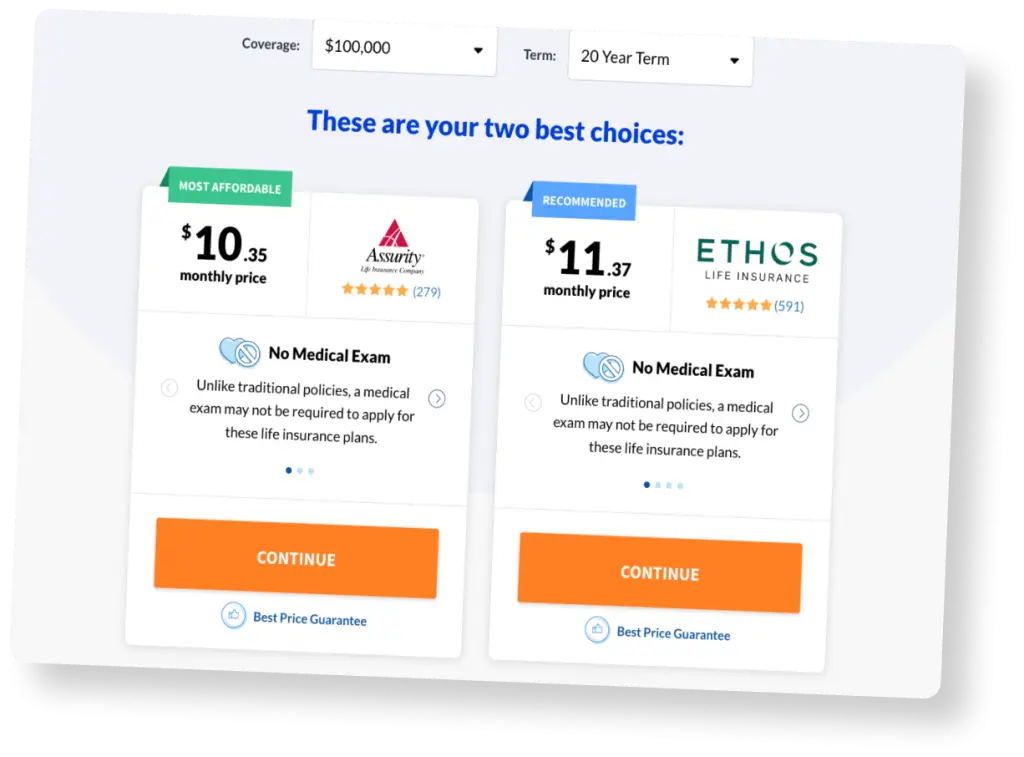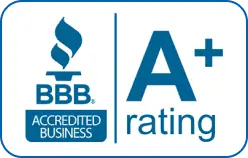Key Takeaways of Key Man Life Insurance Policy Basics
Key person insurance policy provides financial security to businesses by offering a payout if a crucial employee, owner, or executive passes away. Key person insurance cover lost revenue, recruitment, and operational costs.
Key Man Insurance is essential for start-ups, niche businesses, companies seeking financing, and small business owners who rely heavily on specific individuals for revenue generation, technical expertise, or leadership.
Businesses can choose between term life insurance (cost-effective, temporary coverage) and permanent/whole life insurance (long-term coverage with cash value benefits). The choice depends on the company’s financial goals and risk tolerance.
Key person insurance coverage should reflect projected revenue loss, recruitment and training costs, debt obligations, and operational impact. Common valuation methods include the Replacement Cost Method, Contribution to Earnings Method, and Multiples of Income Method.
Businesses often underestimate the financial impact of losing a key person, fail to reassess their needs periodically, or assume key employees will always be available. Ensuring proper coverage can prevent serious financial setbacks.
What Is a Key Man Life Insurance Policy?
Key man insurance is a specialized life insurance product crafted to protect businesses from any financial setbacks if a key person in the company, like a CEO or founder, passes away or loses mental capacity.
Key man life insurance may be purchased for a variety of reasons, but is most common among small- and medium-sized businesses who would find it difficult to recover from the death of a key person without transitional cash.
Every business has key individuals involved to make it a success. Some of these may be irreplaceable due to their skillset, knowledge, leadership or client relationships. In short, they’re the linchpins that keep everything together – and their absence could send the company into a tailspin.
The key person covered may be:
an executive
a high-performing employee (such as a salesperson who holds a business’s primary revenue account)
a highly skilled employee that would be difficult to replace due to proprietary or technical knowledge, artistic skill, or “the face of the business”
Unlike traditional life insurance, which aims to provide financial support to beneficiaries like a spouse or children, this business life insurance offers a payout directly to the business. This gives the company enough money to weather financial storms, like lost revenue or time spent finding a replacement. While both traditional and key person insurance safeguard against the uncertainty of life, they have different objectives. One’s about personal legacies, the other is about shoring up a business so it doesn’t fail.
Start-Ups
The start-up company, more than any other, relies on the abilities and skills of a select group of people. Based on past achievements, these business executives, salespeople, and scientists bring instant credibility to a new company. In many instances, the entire company’s success may depend on only one person.
These key people possess unique abilities to raise capital, have established key relationships with suppliers and vendors, hold technical expertise which is very rare, or own an extraordinary track record of past sales. Whatever the specific case, a start-up company’s most valuable asset is likely its key employee(s) and their loss would likely mean the demise of the company.
Companies Needing to Secure Financing
To get to the next level, most companies rely on financing or investment capital for the cash flow needed to fund expansion or research and development. To secure these funds, lenders (including the SBA) and investors will typically require the business to purchase life insurance on their key people. Even if life insurance is not a requirement to secure financing, having key person life insurance increases the credibility of your loan application.
Financial institutions and investors understand the risks involved in funding an operation that is heavily dependent upon one employee. Key person life insurance ensures that their investment is protected in the event of a disaster. They will often insist on a collateral assignment, which is a legal document that specifies that the loan balance will be paid off first with the insurance payout. The business will receive the remaining insurance proceeds.
If you are applying for an SBA loan and need life insurance, here are best practices for securing life insurance for an SBA loan, which is critical to getting the best results.
Niche Businesses
More than any other type of company, key man life insurance is crucial to niche businesses. Hedge funds, research, and biomedical firms, companies with exclusive contracts, and businesses with patents or proprietary systems all rely heavily on the niche expertise of a key employee or business owner.
If one of these niche people dies unexpectedly, a key person life insurance policy can ensure the business will have the necessary funds to continue to operate until contingency plans are implemented.
Non-Profits and Churches
The most common non-profit organizations needing life insurance are churches and religious institutions. Churches routinely need to expand as their ministry and congregations grow, creating needs for additional classrooms, a gymnasium, or worship center.
To borrow the funds necessary, many banks will require a life insurance policy on the pastor of the church or their elders. It makes perfect sense as the growth of the church is, in large part, related to the vision of its pastor or minister.
Business Owners
Small business owners have multiple needs for a key man policy insurance, including:
Providing income to the business to replace the skills and experience of one of the company owners
Creating liquidity to buy out a deceased partner or shareholder’s family to avoid unintended extended-family partnerships. This is often done in conjunction with a buy-sell agreement, which includes the instructions for what to do in the event of the death of a shareholder or business owner.
Business succession planning and providing funds for the successful transition of the company when an owner retires. This is typically done using a key man life insurance policy with a cash value component, providing the liquidity needed to successfully transition the ownership of the company without a dramatic effect on its earnings ability and cash flow.
What Type of Key Person Life Insurance Policy Should I Consider?
The general rule for buying key man life insurance is to identify the exact reason for the purchase. Once the need is clear, you can lock-in the key man life insurance rates for the period that matches the need. Sounds simple, but many business owners focus too heavily on price alone and end up having to requalify medically ten years out when they should have considered a longer guaranteed plan from the outset.
Key Man Term Life Insurance
In most cases, we recommend getting key man life insurance quotes for an ordinary level-term life insurance policy.
The chief reason for key man term life insurance is its low cost. Many organizations needing key man insurance are small businesses with cost concerns, and term life is the cheapest way for a company to protect itself adequately.
A variety of terms are available, including:
Annual renewable term plans
These are the absolute lowest priced policies for the first year. However, rates will increase every year the coverage is maintained. In most cases, the need for key man life insurance is more than one year, so these yearly renewable plans are generally not the most cost-effective over time. We caution our clients not to be short-sighted when it comes to price as annual renewable policies can often become more expensive than a ten-year plan within 3-4 years.
Ten-year level term
This is the “sweet spot” for the majority of key man life insurance needs. Rates are locked-in for a full ten years, and the price provides tremendous value. In business, ten years is like an eternity, as many things can and do change. And, if the need for the coverage is less than the full ten year period, the policy can be dropped anytime without penalty. The price value with the flexibility to adjust makes a ten-year term life insurance plan the most attractive option for most businesses.
Longer-term options
There are also more extended level term options including 15, 20, 25, and 30-year guarantees. The longer the guarantee period, the more expensive the coverage as you have the insurance company “on the hook” for a more extended time. However, in the case of long term notes or succession planning, the insurance need can call for more extended guaranteed coverage and, in some cases, permanent or “whole life” insurance.
Permanent or Whole Life Insurance
Permanent or “whole life” insurance policies are useful in business succession planning cases. As lifetime guaranteed policies, they are generally the most cost-effective solution over time. By locking up a rate for “life,” cash can be guaranteed to be accessible for buying out a deceased owner’s equity.
trusted by 5,000+ clients
Compare Life insurance Rates
See rates and benefits tailored to your business needs.
How Much Key Person Life Insurance Coverage Do You Need?
It can be hard to put an exact monetary value on how important a key person is to a given business. However, the amount of life insurance you request needs to be closely associated with the real loss to the company if it loses this key person.
How exactly do you quantify the financial impact of a key person in the business? It’s a nuanced endeavor, to put it lightly. Here’s a roadmap to help guide companies through the optimal coverage amount.
Projected revenue loss: Estimate the decrease in sales or profits directly attributable to the key individual. Consider both short-term disruptions and long-term diminished growth.
Recruitment and Training Costs: Factor in expenses for searching for, hiring, and training a suitable replacement. Specialized roles might demand higher recruitment fees and longer training periods.
Debt Obligations: Some debts might become immediately due on a key person’s departure. The coverage should be sufficient to cater to these sudden financial obligations.
Operational Impact: Evaluate potential interruptions in production, services, or project delays. This can influence client trust, contractual obligations, and revenue streams.
Rule of Thumb: Some businesses use a simplistic approach, like insuring for 8 to 10 times the key person’s annual income. While this isn’t exhaustive, it’s a starting point.
The Maximum Key Man Life Insurance Coverage Amounts
The general insurance company guidelines for the amount of keyman insurance available are as follows:
Employees
For an employee who owns no equity in the business, the maximum amount of coverage a company can buy is ten times the employee’s annual income.
That does not necessarily mean your business should buy ten times annual income; it’s the stated maximum. You may well find 5 to 7 times the employee’s yearly salary may be adequate, and there is no reason to have a dime more insurance than you need.
Employees with Equity Ownership
For an employee of the business who is also an equity owner, the maximum amount of life insurance a company can purchase is ten times income, plus the fair market value of their ownership interest in the business.
The Benefits of Key Man/Person Life Insurance
In any economy, continuity and stability are paramount for businesses. Key Man/Person Life Insurance is a safeguard option against any uncertainty. Let’s explore its potential benefits.
Financial Security
Should a key individual pass away or become incapacitated, the payout from the policy offers a financial lifeline. It helps offset immediate losses and keeps the company afloat during what will undoubtedly be a turbulent period. If the covered key employee passes away, the death benefit will be paid directly to the business.
Smooth Operations
Even with losing a key employee, a business’ obligations are still ongoing. The cash injection can be used to manage operational costs, ensuring minimal disruption to daily business activities and preventing potential layoffs.
Stakeholder Assurance
Stakeholders, be they investors, partners, or creditors, are reassured knowing there’s a backup plan. The policy bolsters confidence in the company’s longevity and resilience.
Talent Retention
Other employees might panic about their own jobs with the unexpected loss of a founder or CEO. This policy can help reassure workers their jobs are safe and keep talented individuals in the company.
In essence, Key Man/Person Life Insurance doesn’t just protect the business – it helps to secure its future and shield it from any potential storms.
How to Determine Who Needs Key Man/Person Coverage
Every business has that one person the company couldn’t do without. By virtue of their skills, roles or relationships, they’re a foundational pillar. Here’s how to tell who those people are:
Crucial Revenue Drivers: Those whose contributions significantly influence profitability, such as top salespeople or lead product developers.
Technical Specialists: Individuals with unique skills or knowledge that would be challenging and expensive to replace.
Strategic Visionaries: Founders, CEOs, or key managers who steer the company’s direction and strategy.
Key Relationship Holders: Those who nurture vital client relationships, partnerships, or supplier ties, holding the key to smooth collaboration and trust.
Regularly reviewing roles and contributions ensures businesses capture any evolving dynamics, guaranteeing protection remains apt and aligned with company needs.
Conventional Key Employee Valuation Methods
As previously noted, just because a certain amount of key man life insurance is available doesn’t necessarily mean you need it. So, the second part to understand when reviewing key man life insurance quotes is how much money you need in the event of an employee’s death.
There are several valuation methods for key employees commonly used to determine the proper amount of key person insurance needed.
These valuation methods include:
Replacement Cost Method
The contributions to earnings method is calculated based on the percentage contribution the key employee makes to the company’s bottom line profit. For example, a top salesperson in a small business may contribute 50% or more of the sales of the company, directly resulting in half of the company’s profits. In this case, multiply the actual value of half of the company’s annual profits by the number of years needed to train an equivalent replacement.
Contribution to Earnings Method
The contributions to earnings method is calculated based on the percentage contribution the key employee makes to the company’s bottom line profit. For example, a top salesperson in a small business may contribute 50% or more of the sales of the company, directly resulting in half of the company’s profits. In this case, multiply the actual value of half of the company’s annual profits by the number of years needed to train an equivalent replacement.
Multiples of Income Method
The multiple of income method is the simplest and most common way of determining the value of a key employee. As previously noted, most life insurance companies use a common multiple of 8-10 times the key person’s current annual salary, including benefits, as a general guideline. Of course, depending on the specifics of the position, a higher or lower multiple may be justified.
The multiple of income method is the simplest and most common way of determining the value of a key employee. As previously noted, most life insurance companies use a common multiple of 8-10 times the key person’s current annual salary, including benefits, as a general guideline. Of course, depending on the specifics of the position, a higher or lower multiple may be justified.
Insurance companies are not limited to the key man valuation methods discussed above. Each case merits specific consideration, and therefore should be reviewed based on circumstances. Working with a true professional that specializes in key man life insurance will assure the best results.
Questions to Ask Before Buying Key Person Life Insurance
After establishing the need for key person life insurance, there are a few questions to answer before you start comparing key man life insurance rates.
Knowing the answers to these questions will help determine the type of key man insurance needed, how much coverage is required, and how long the policy should be maintained. Contemplating these questions will provide a good starting point as you’re collecting key man life insurance quotes. With this information, you will identify your specific risks, making it easier for us to help you find the best solution to your specific situation.
You Can Use the Questions Below as a Checklist For Purchasing Key Man Life Insurance
QUESTION #1: Why are you considering a key employee life insurance policy? Did your attorney recommend it? Were you researching on the internet and found out that you should have it? Maybe your banker is asking for it or you’re putting together a business plan? Once you know why you need it, you can narrow down your options to determine the exact amount of coverage required and for how long. You can then work to find the most competitive key man life insurance rates.
QUESTION #2: What would happen to the company if a key employee dies? Are there existing contingency plans in place? If not, what do you want to happen to the company? If you’d prefer it be kept rather than liquidated or sold, how much money is needed to stabilize the company until it can recover? How long will it take the business to rebound?
QUESTION #3: Can a capable replacement employee be easily found? If not, how much will it cost to locate and train a replacement? What type of compensation will it take to hire the new employee? In some cases, you may have to hire more than one person to cover the responsibilities of the key person. How much money is going to be required to meet these requirements? You need to think this through carefully and even have a plan in place for this contingency.
QUESTION #4: What percentage of revenue is directly attributable to the key person? How would business cash flow be impacted in the event of their death? Would it result in the loss of clients? How long will it take to stabilize the company’s revenue?
QUESTION #5: What would happen to your company if your business partner died? What would happen to the ownership? Would you be forced to be in business with your partner’s spouse or family? How would you replace your partner’s experience? How would your partner’s family get the income/equity of their interest? Would revenue even be there to pay them? Key employee life insurance is a perfect way to provide liquidity for a business transition. It provides instant cash to buy-out a deceased partner or shareholder’s interest while allowing for the surviving partner to maintain control of the company.
QUESTION #6: Is the company willing or able to self-insure? What are the actual costs of not doing the insurance? Does it make sense to forgo coverage? In nearly all cases, the price of a key man life insurance policy is a small fraction of the cost of self-insuring. Simple cost comparisons will lead you in the right direction.
What If You Are Unable to Qualify Medically for a Key Man Life Insurance Policy?
In some instances, adverse health or other circumstances may prevent an employee from qualifying for a traditional key man life insurance policy. If you are uninsurable or even declined for a conventional key man insurance policy, there may be a key man insurance alternative. A “Key Man Failure to Survive” policy can effectively work as an ordinary life policy to provide death protection under most circumstances.
Key Man Failure to Survive (FTS) plans provide limited coverage when an individual can not otherwise qualify for a traditional key man life insurance policy. Some examples of cases where Key Man FTS coverage fits include substance abuse history, obesity falling outside traditional underwriting guidelines, or short term coverage needs when a new medical condition may have resulted in a decline. In these instances, death protection is available with a specific disease or condition being “excluded.” These policies allow a business to protect a key person from any death that occurs from a non-excluded condition such as an accident or unrelated illness.
A Key Man Failure to Survive policy can be a useful tool for solving key man life insurance risk. It can also be used as a “bridge” to buy time until the key employee can locate coverage under standard traditional underwriting. Most agents have no experience with “Failure to Survive” policies, so it is vital to work with a professional.
How Life Insurance Underwriting Works: 5 Steps To Securing Keyman Coverage
After choosing a key man life insurance policy, it must go through underwriting. Underwriting is the process whereby an insurance company gathers all of the required information to formally review and approve an individual for key man life insurance.
The following five steps are the general criteria every insurance company will require to assess, approve, and issue a key man life insurance policy. You can also check out our key man life insurance underwriting guide for an in-depth understanding of how it works.
Step #1: Key Man Life Insurance Application
Every insurance company will require a completed application for life insurance. Each company has its specific application questions and forms, and some are more comprehensive than others. Gathering answers to these questions will take some time. A professional advisor can be extremely helpful in simplifying this process.
If a company requires an exam, the application can be in paper form or completed electronically. Many insurance companies offering a no-exam option will allow you to skip some application questions requiring only a brief online application. However, this process will require a 15-20 minute telephone interview.
See Key Man Life Insurance Preperation Guide
Included on the form are general questions about the key person such as:
name
date of birth
social security number
address
income
employer
Insurance companies will also want to know about other things such as:
hazardous sports
hobbies
driving record
criminal record
bankruptcy
foreign travel plans
Depending on the insurance company, some may ask about the specific health details of the key person. Others will get this information from the insurance exam.
Since the business will own the policy and be the beneficiary, every insurance company will want specific details about the business, too, including:
legal business name
business address
telephone number
tax id number
the legal structure of the business (sole proprietorship, partnership, corporation, LLC, etc.)
nature of the business
business inception date
complete financial information including gross sales, assets, liabilities, net worth for the past two years, and tax returns
fair market value estimate
shareholders and equity percentages
Depending on the state, other supplemental forms will be required such as a policy replacement form, HIV consent, HIPPA Authorization, and Accelerated Benefits. Most every company will require an Employee Consent Form.
Before submission, the application will need to be signed by both the key person (the insured) and a representative of the business as the policy owner (applicant).
IMPORTANT: To get the best results and to have a smooth and efficient underwriting process, it is critical to provide as much detail as possible on the application. Any questions or “gray areas” need to be explicitly addressed to give the underwriter a clear picture of the circumstances. A properly completed form can make a massive difference in the time it takes to get a policy approved as well as the actual rates of the plan.
Step #2: Medical Exam for Key Man Life Insurance
Unless you are applying for a no-medical policy, an insurance exam will be required. The insurance exam is a “mini-physical exam” which includes:
a height and weight measurement
blood pressure check
resting heart rate
a blood and urine specimen
12-15 medical questions
An EKG may also be necessary for older applicants or larger case sizes, or where a previous heart condition is known.
The exam is usually completed in the convenience of the insured’s home or office and administered by a Registered Nurse or trained Phlebotomist. If the policy is substantial, the exam may need to be completed by a Physician.
The exam is paid for by the insurance company. The insured person will receive their lab results for free. The most important part of the exam will be blood and urine results.
Step #3: Final Review
Once the application is submitted and the exam completed, the insurance company can begin the evaluation process to approve the policy. This process involves reviewing all of the application and exam material, including lab results.
Routinely, the insurance company will order medical reports from physicians to get specific details of medical conditions and treatment history. This process may take a couple of weeks, depending upon how quickly doctors and medical facilities respond to the request for records. Working with an experienced agent will make a huge difference in getting the most efficient results.
Step #4: Acceptance Signatures and Payment
Once the policy is approved, it is mailed or sent electronically for review and signature. At this point, the only other requirement is a payment to make the policy active.
Step #5: Collateral Assignment
If the insurance was purchased to secure a loan, a Collateral Assignment can be submitted to the insurance company once the policy is in force. The Collateral Assignment specifies that the benefit payout will first be used to pay the lender and satisfy the conditions of the loan. The Collateral Assignment needs to be signed by the lender (the “assignee”) and the policy owner (the “assignor”).
Common Misconceptions & Mistakes
Navigating the intricacies of Key Man/Person Life Insurance often leads businesses astray. Often, the biggest misunderstanding is that the policy benefits the key person’s family, as well. In reality, the insurance is for the business only.
Underestimating the financial fallout from a key person’s loss can leave businesses vulnerable, so a financial assessment is paramount to secure the company’s future.
Failing to periodically reassess the business’ needs and key person is another common error. Not doing so can result in misaligned coverage, leaving the organization vulnerable.
But the biggest issue of all is believing that key personnel will stick around forever. Not having this kind of business life insurance in place is often a grave oversight for small and medium-sized businesses, who wish they’d had it in place when life throws a curveball.
trusted by 5,000+ clients
Get Personalized Quotes Tailored to Your Company’s Needs
What is Key Employee Insurance
Key employee life insurance is usually purchased on one or more key people in a business to protect the business from the economic loss associated with an untimely death of an important employee. The company buys the insurance to cover the life of the key person and is also the policy beneficiary.
In the event that the key employee dies, the business receives the lump sum policy proceeds that can be used at the company’s discretion to stabilize the company until a replacement employee can be found.
Types of Key Employee Life Insurance
There are two basic types of life insurance used for key man life policies: term life insurance and universal life or whole life insurance. The type of policy used depends on the specific needs of the business. For example, start-up firms that do not have steady cash flows would use term life insurance because of its relatively low cost and flexibility. On the other hand, more established companies with significant earnings may select universal life or whole life insurance as these policies build cash value, which is an asset on the company’s balance sheet and can be accessed anytime at the discretion of the company.
The Best for Key Man Life Insurance Quotes
Our name says it all. Since 2002, we have been the dominant online provider in the best key man life insurance rates available from top national providers. Early on, we made a commitment to be specialists in this corner of the industry; you owe it to yourself to do business with an expert who has the knowledge and experience to get you covered!
Our free advice has saved our website visitors and clients millions of dollars collectively. Our efforts have also helped many avoid headaches and pitfalls and save valuable time. That’s because we believe in making sure our customers are well-educated when it comes to their key man life insurance options, and have a full understanding of the insurance policy they purchase.
You deserve a company that will make sure you get the best insurance coverage for the best price. With our proven track record and long-standing industry relationships, you want us by your side. Let us help you uncover your best key man life insurance coverage options.
Don’t just take our word for it. Let us prove it. Call us today or submit a key man insurance quote request online.
Frequently Asked Questions (FAQs) about Key Man Life Insurance Policy Basics
What is a Key Man Life Insurance Policy?
A key person policy is a type of business-owned life insurance that provides financial protection in case of major financial harm, like a key employee, owner, or executive passes away or becomes disabled. The business is the policyholder, pays the premiums, and receives the death benefit to help cover potential financial losses, such as lost revenue, hiring and training costs, or business loan obligations.
How Much Does It Cost to Insure a Key Man?
The cost of key employee life insurance, just like the personal life insurance, depends on several factors including the insured individual’s age, health, lifestyle, policy type, and coverage amount. Generally, term policies are more affordable, while permanent policies are more expensive. On average, businesses can expect to pay between $500 to $2,000 per year per $1 million in coverage, though higher-risk individuals may see increased premiums.
What is the Maximum Insurance Amount for Key Man?
There is no strict maximum limit for key man insurance, but coverage amounts are typically based on the financial impact of the key employee on the company. Most businesses insure their key personnel for 5 to 10 times their annual salary, though some policies may be structured based on business revenue, outstanding debts, or projected financial losses. High-value policies may require additional financial justification and underwriting approval.
Conclusion and Summary of Key Man Life Insurance Policy Basics
Key man life insurance is a critical safeguard for businesses that depend on specific individuals for financial stability, leadership, and operational continuity. Whether for startups, niche industries, or companies seeking financing, having the right policy in place ensures that a sudden loss doesn’t derail the organization.
By carefully assessing coverage needs based on revenue impact, recruitment costs, and operational risks, businesses can secure financial protection and maintain stability. With options ranging from term life to permanent policies, selecting the right coverage requires thoughtful planning and professional guidance. Investing in key man life insurance is not just about mitigating risk, it’s about protecting the future of the business.













